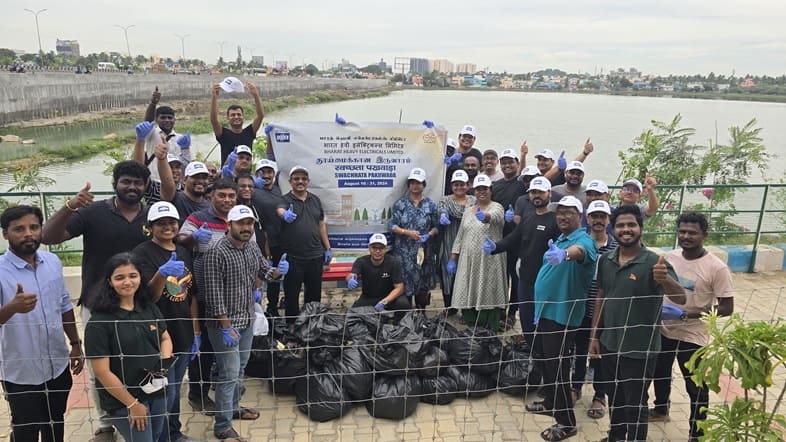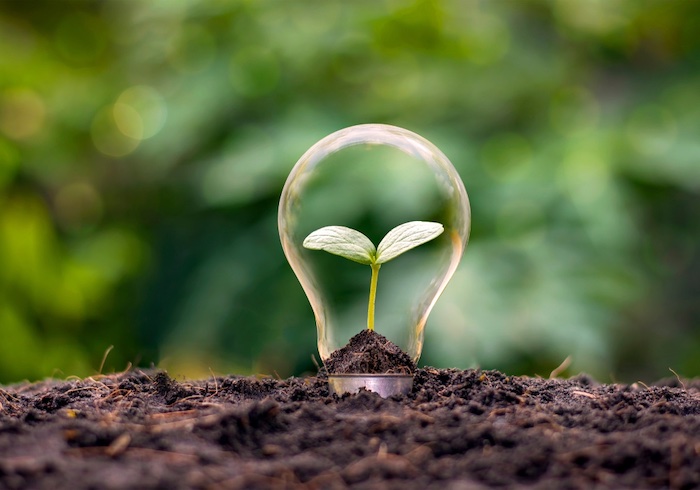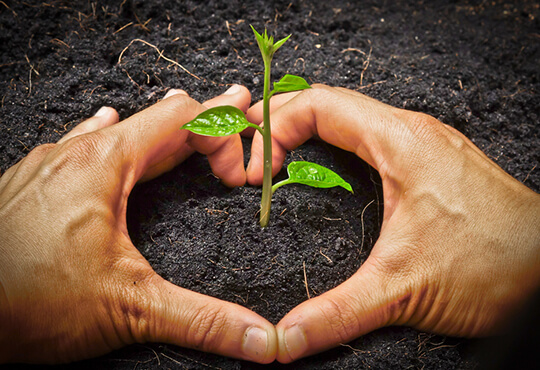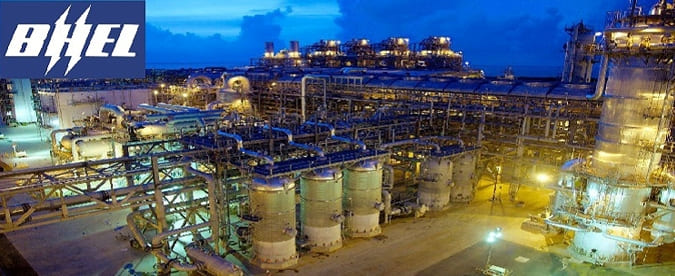Bharat Heavy Electricals Limited (BHEL) is one of the country’s top Maharatna CPSE entities and one of India’s leading engineering and manufacturing giants established in 1964. BHEL has been ‘Making in India’ as a leading Capital Goods sector company.
The company’s businesses are in the area of power and industry, offering comprehensive solutions, including products, systems and services to power generation (thermal, hydro, gas, nuclear and solar PV), transmission, transportation, defence, aerospace, oil & gas and other core sectors of the country, and also abroad.
BHEL incorporated as Public Sector Undertaking of Government of India, with a shareholding of 63.17%, has established 16 manufacturing plants spread across India, producing capital goods for the customers in domestic as well as international market.
The Company has been supporting communities through programs like skill development; promoting health, hygiene & education; and running several programs on environmental protection & improvement.
CSR spent
BHEL’s total amount of CSR expenditure for the Financial Year 2023-24 is Rs 401.36 Lakh.
CSR activities of BHEL
BHEL has seven focus areas for carrying out its CSR initiatives, which are in line with activities and areas mentioned in Schedule VII of the Companies Act, 2013. These include:
CSR for Clean India (Swachh Bharat)
Under this, BHEL has provided CSR funds for the construction of 23 clusters of Biodigester toilets in Haridwar & Rishikesh in Uttarakhand.
As part of the Swachhata Pakhwada, a two-week initiative from August 16 to August 31, 2024, BHEL took part in enhancing cleanliness in both urban and rural areas. Teaming up with Bhumi, a leading volunteering organization, BHEL spearheaded a vibrant lake cleanup drive at Pallavaram Lake, also known as Periya Lake, in a dynamic effort to promote environmental sustainability.

CSR for Educated India (Shikshit Bharat)
BHEL has provided financial support for the distribution of “You can be Happy” series books, followed by health & career counselling for KVS students in Delhi NCR through ISKCON.
CSR for Healthy India (Swasth Bharat)
BHEL has provided financial support for “Heal-A-Soul IV”- Providing Anti Haemophilic Factors (AHF) to Persons & Children with Haemophilia (P&Cwh) in various Aspirational Districts across India under its CSR initiative.
CSR to make India inclusive (Samaveshi Bharat)
BHEL has provided financial support to the Municipal Commissioner of Varanasi for installation of 100 numbers Heritage Street Lighting System at Varanasi.
The company provided financial support to the “Professional Assistance for Development Action” for the project: Motivating Agrarian communities of Kandhamal (Odisha) for their Economic Transformation.
Financial support has been given to Sulabh International Social Service Organisation for Construction, Operation and Maintenance of Sulabh Toilet Complexes at 11 identified Places in Varanasi and Chandauli, Uttar Pradesh.
Financial support has been given for the construction of Sarai building for approx. 100 People at Dr. Rajendra Prasad Government Medical College, Tanda, in Kangra District, Himachal Pradesh.
BHEL has also provided financial support to District Collector, Suryapet, Telangana for setting up 36 Gyms.

Sustainability at BHEL
Not only Corporate Social Responsibility (CSR), BHEL also takes efforts towards making the planet greener. Following are the sustainability measures taken by BHEL.
Responsible Material & Natural Resource Consumption
Sustainable material consumption through optimization, waste minimization in manufacturing processes, nesting plans for cutting metal sheets and sections to reduce wastage, recycling/utilisation of cut bits or offcuts generated are some of the measures taken for promoting resource efficiency.
Energy Management
BHEL has been providing its customers with more energy efficient equipment and power plants with cleaner technologies and contributing towards energy efficiency and carbon emission reduction in consistency with UN Sustainable Development Goal 7 (SDG 7) – Affordable & Clean Energy.
Water & Biodiversity Management
BHEL has established more than 140 Rainwater Harvesting Systems of different sizes and capacities across its campuses for recharging ground water table. Nine new water harvesting structures have been added this year. To recharge ground water table, 8 new water bodies were also created during the year. For prevention of water pollution and sustainable management of wastewater, the company has established 20 Effluent Treatment Plants (ETPs) and 19 Sewage Treatment Plants (STPs). New STPs at SBD Bengaluru and HPVP Vizag units were commissioned during FY 2023-24. Notably, 11 manufacturing units are not letting out any effluent outside their premises.
Green Cover
The premises of all BHEL units are covered with trees, shrubs and water bodies extending to about 40% of total land area in BHEL premises. As per the company’s internal estimation, the total number of shrubs and trees in its premises is about 30 lakhs. Three BHEL units namely; Jhansi, Hyderabad and Trichy unit have developed Miyawaki forests with cumulative coverage in excess of 15,000 square meters.

During last 5 years, more than 3.10 lakh saplings were planted in different BHEL units. Out of these, 81,608 saplings were planted during the year 2023-24. In addition to green cover, larger manufacturing units have water bodies too inside their campuses. With an objective to promote biodiversity, eight new water bodies were created in different BHEL units during the year.
In FY 2023-24, BHEL became part of World Economic Forum’s (WEF’s) one trillion trees initiative by taking a pledge on ‘1t.org’ aiming to empower the reforestation community and ensure the conservation and restoration of one trillion trees. BHEL has taken a pledge to conserve 3 million existing trees in its campuses, and augment the same by planting more saplings.
Carbon Management
BHEL’s carbon management strategies to achieve Net zero status by 2047 is reflection of its commitment for transitioning towards a sustainable energy mix and reducing its carbon emissions. To reduce carbon emission as well as air pollution, most of its Manufacturing Units have switched to greener fuels such as LPG/ CNG/ RLNG in place of coal/ FO/ HSD/ LDO for heating purposes.
BHEL’s manufacturing units have onsite captive solar PV systems in excess of 35 MWp, resulting in 8% increase in avoidance of carbon footprints in FY 2023-24 over previous year.
The company’s green cover also acts as a natural carbon sink, complementing carbon reduction efforts. Ongoing Energy Conservation (EnCon) and Energy Efficiency (EE) projects contribute to Scope-1 and Scope-2 emission reductions on a continual basis, reinforcing BHEL’s commitment to carbon management and sustainability.
Waste Management
The Company has well laid out systems for management of different types of wastes based on the principles of 3R (Reduce, Recycle, Reuse) following below mentioned measures.
All metallic wastes are segregated at source for re-use to maximum extent before selling to authorised agencies as scrap.
Hazardous waste, e-waste and battery waste are safely stored and disposed-off to the authorised agencies and prescribed returns are submitted to the concerned regulatory agencies. The biodegradable wastes are used for composting to the extent possible. In HEP, Bhopal the canteen waste is used in bio digester for generation of bio-gas.
The inert (non-hazardous) wastes having no resale value, are used in construction for back filling or used for filling low lying areas within our premises. A Special Campaign 3.0 on Swachhata was initiated across BHEL during October 2023 focusing on collection and disposal of scrap. All fifteen BHEL townships have been certified as “Single Use Plastic Free” township.


